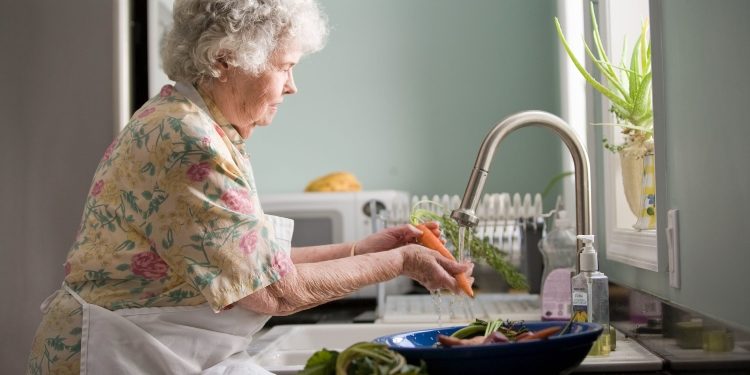Household chores, often considered an everyday task, have long been the topic of debate when it comes to sharing responsibilities between genders. A recent survey conducted by the National Centre for Social Research unveiled some intriguing findings. Despite the prevailing belief among many Brits that these tasks should be shared, the reality reflects a starkly different picture.
The annual British Social Attitudes survey, which has been delving into the social and political views of Britons for over four decades, highlighted an interesting discrepancy. While 80% of those surveyed believed that tasks like cleaning should be equally divided between men and women, the chores remain largely women’s domain in practice. The pattern continues when observing tasks like washing and ironing.
A significant number of households expressed the belief that these duties should be split. However, in reality, women handle these tasks in the majority of homes. It’s startling to note that less than 10% of households reported men taking up the primary responsibility for washing and ironing.
But there’s a silver lining. When examining the progression of attitudes over the years, a positive change is evident. In the 1980s, nearly half of the respondents felt that men’s primary role was to earn money, while women should tend to the home. Fast forward to the present day, and only 9% of survey-takers echo this sentiment. This decline in traditional beliefs suggests that society’s mindset is evolving, albeit slowly.
However, there’s a persistent imbalance. Even as women increasingly step into the workplace, standing shoulder to shoulder with their male counterparts, they continue to shoulder a larger portion of household responsibilities. For many women, this means playing a challenging balancing act between professional commitments and domestic chores.
Realising the pressure of managing both professional and personal responsibilities, many young working professionals are seeking solutions. For instance, nearly half of individuals aged between 25 and 34 now opt for professional cleaning services. It’s not just about getting a clean home; it’s about freeing up valuable time. The younger generation, more than any before them, recognises the importance of achieving a work-life balance. Instead of stretching themselves thin, they prefer investing in services that provide them with more leisure time.
The priorities of this younger generation are refreshingly different. Instead of acquiring material possessions, they prioritise life experiences. They would rather create memories, travel, or indulge in hobbies than hoard things that older generations might have coveted. This shift in values and the inherent need for time and convenience has significantly boosted the demand for professional cleaning services.
This phenomenon isn’t unique to the UK. The US is observing similar trends in its home cleaning market. For a growing number of people, allocating budget for a cleaning service is on par with other essential household expenses. Many, even when faced with budgetary constraints, would think twice before letting go of their cleaning help. The reason? They understand and value the time and convenience these services provide.
In conclusion, while the conversation around shared household responsibilities remains vital, it’s clear that the younger generation is finding new ways to navigate these challenges. As the demand for services like professional cleaning continues to grow, it will be interesting to see how these dynamics further evolve in the coming years.
David Prior
David Prior is the editor of Today News, responsible for the overall editorial strategy. He is an NCTJ-qualified journalist with over 20 years’ experience, and is also editor of the award-winning hyperlocal news title Altrincham Today. His LinkedIn profile is here.













































































